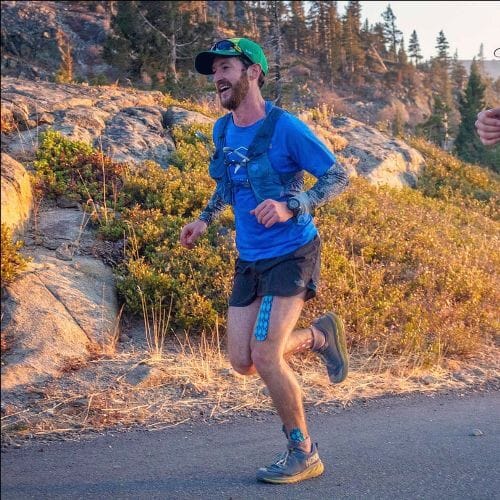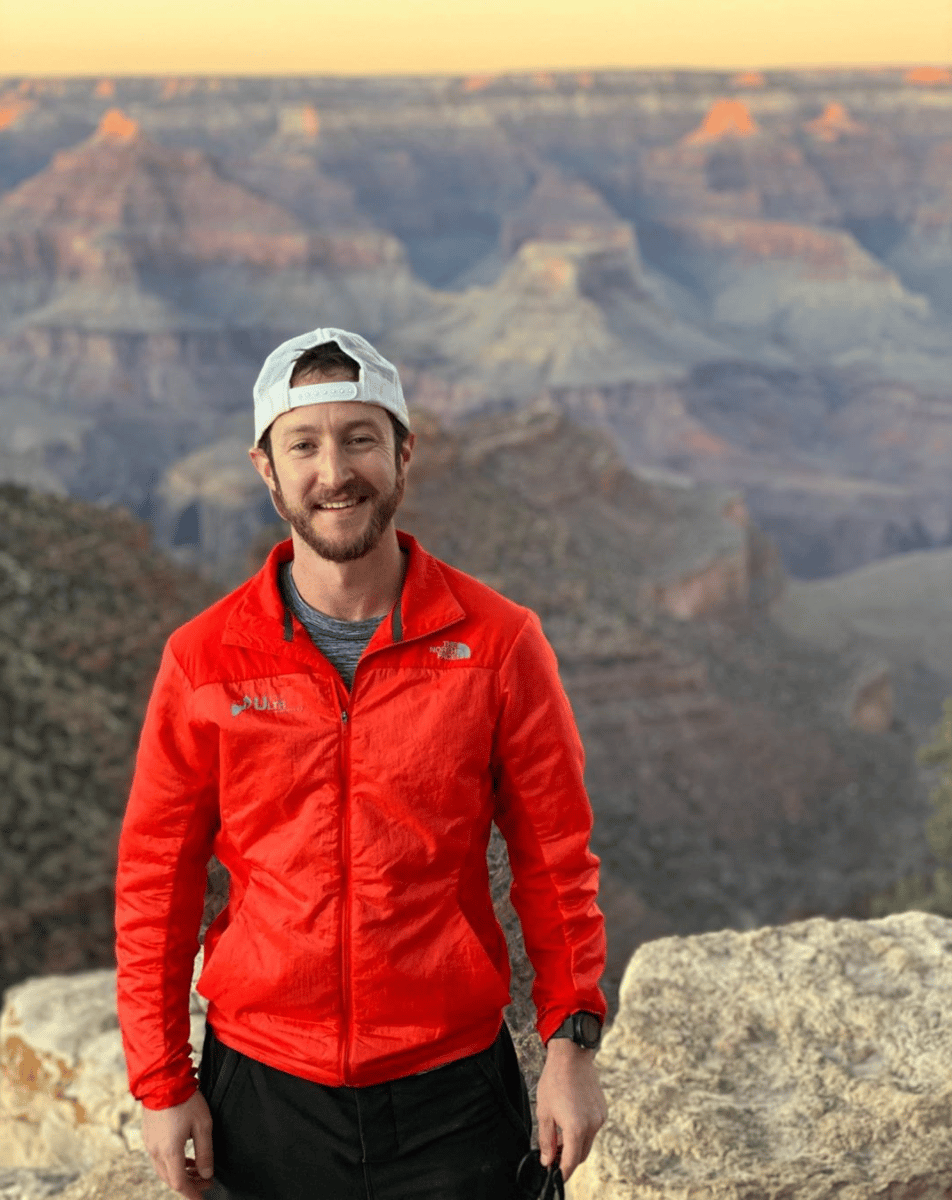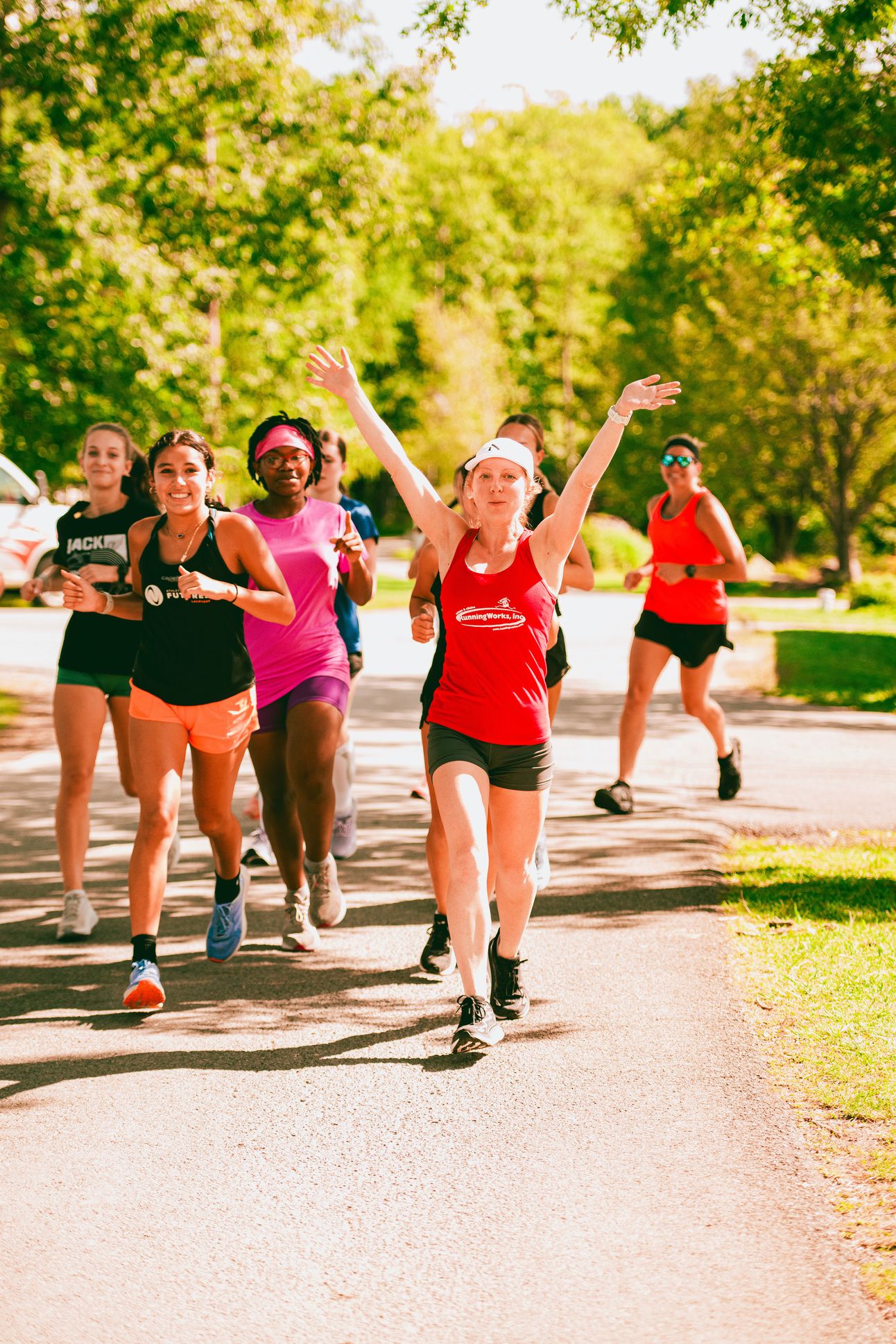A Shame-Free Look at Eating Disorders, Recovery, and Mental Health in Runners with Katie Ringwood
The intersection of athletics, mental health, and eating disorder recovery is still far too quiet. For many runners, the pressure to perform physically collides with silent struggles around food, body image, and identity. Licensed therapist Kate Ringwood knows that terrain intimately—not just through her work, but through her own lived experience as a competitive athlete in recovery.
Kate joined the podcast to share her journey from joyful childhood runs to burnout in college, and how rediscovering her love for running helped shape her career in mental health. Now, as a therapist who specializes in eating disorders in athletes, she’s committed to helping others navigate those same challenges with empathy and clarity.
When Running Stops Feeling Good: Burnout, Disordered Eating, and Taking a Step Back
Kate began running at age 10, and the early years were filled with team camaraderie, road trip races, and genuine fun. But as she advanced into high school and then college-level competition, the joy of running became tangled with pressure, injuries, and ultimately an eating disorder. By her junior year, she no longer looked forward to practice—it felt miserable. She made the hard choice to step away from her college team, not because of injury, but because she needed to reconnect with herself.
That decision marked a major turning point. With time and distance from competition, she gradually found her way back to the sport. One perfect spring day, she laced up her shoes, not because she had to, but because she wanted to. That single run reminded her of what she loved about the sport. The pressure was gone, replaced by curiosity. Her return led to a strong senior season, and eventually, even faster races after graduation.
Redefining Recovery: Emotional Triggers, Body Image, and Mental Resilience
Kate’s experience taught her that eating disorder recovery for athletes is deeply nuanced. Recovery isn’t about perfection—it’s about learning to respond to triggers with awareness, not avoidance. For Kate, that means recognizing when old patterns creep in and knowing how to meet those moments with self-compassion. She emphasizes that full abstinence from food or body awareness isn’t realistic. Instead, recovery involves building emotional resilience, understanding your body, and knowing what support looks like.
A major part of her work as a therapist is helping clients reduce the shame around disordered eating, body dysmorphia, and under-fueling. Many athletes, she says, don’t even recognize they’re struggling because their behaviors are normalized in sport. They might be told they're “disciplined” or “committed,” when in reality, they’re stuck in harmful cycles that affect their performance, mental health, and long-term well-being.
Bridging Nutrition and Therapy: Helping Athletes Heal Inside and Out
Originally, Kate studied culinary nutrition with the goal of becoming a dietitian specializing in eating disorders. But during her internships, she realized that food is only part of the healing equation—emotions, identity, and self-worth are just as important. That realization led her to earn a master’s in counseling and become a licensed therapist.
Now, she draws on both backgrounds to support her clients holistically. She doesn’t prescribe meal plans, but she does help athletes understand the emotional roots of their food challenges—why they restrict, why they binge, and why it feels so hard to fuel properly before or after a run. For many of her clients, it’s not just about fueling for performance, it’s about healing a damaged relationship with food and exercise. Tangible goals often blend with deep emotional work, like challenging a fear food while unpacking the anxiety tied to it.
Kate is candid about the toxic influence of social media and modern diet culture. From “What I Eat in a Day” reels to intermittent fasting fads promoted by tech bros, the online landscape is littered with messaging that normalizes restriction, overtraining, and body obsession. And it’s not just young women—these messages affect people across genders, especially in performance-driven spaces.
Her advice? Be intentional. “Hack the algorithm,” she tells her clients. If your feed is full of diet content, click on joyful things instead—puppies, nature, recipes you actually like. Curate your feed to support your healing, not sabotage it. She also points out that most people with eating disorders were dieting before symptoms escalated—and that dieting is often the gateway to long-term physical and mental health issues.
Helping Athletes Reconnect with Running and Themselves
Kate’s current therapy work focuses heavily on identity, performance anxiety, and post-competition transitions. She sees clients who are recovering from disordered eating, navigating burnout, or trying to figure out who they are after stepping away from competitive sport. Whether it’s managing race-day nerves or unpacking the myth of the “runner’s body,” her approach is rooted in empathy, curiosity, and deep understanding.
She also facilitates a support group for “retired” runners—a space for athletes who’ve had to adjust their expectations due to injury, age, or life shifts. For Kate, you’re never really retired from running. You just learn to approach it differently. And in that process, you often discover more about who you are beyond splits and PRs.
You Don’t Have to Be “Sick Enough” to Deserve Help
One of Kate’s most important messages is this: You don’t need a formal diagnosis to seek support.
Whether you’re struggling with food guilt, negative body image, performance pressure, or simply trying to navigate your relationship with running, your experience matters. You deserve help. You’re not alone. And it’s absolutely possible to heal.
“No one ever feels ‘sick enough’ to get help. But if you’re struggling in any capacity, that’s enough.”
Resources + Where to Find Kate:
Instagram: @serendipity.counseling
Therapy Practice: Serendipity Counseling
Community Resource: Lane 9 Project – a network connecting athletes to therapists, dietitians, and coaches
This conversation is for any athlete (or person) who’s ever felt caught between loving their sport and feeling trapped by it. Whether you’ve struggled with eating disorders, under-fueling, body image, or the intense pressure to perform, Kate Ringwood brings a rare combination of lived experience, clinical expertise, and deep compassion.
Her story is a reminder that you can heal, you can run without shame, and you’re allowed to change your relationship with sport without losing yourself in the process. ❤️🩹
👉 Tune in for an honest, affirming, and practical look at what it means to run for yourself, not from yourself.
And ask yourself the question Kate had to face during her own recovery:
“If I want to keep running, can I keep running like this?”
The Adventure Buddy You Need 👇

This app blows my mind every time I use it!
GOES is your essential outdoor guide that keeps you informed and ready, no matter where the trail takes you. Created by wilderness medicine doctors, this app helps you level up your knowledge, plan smarter trips, and handle medical emergencies with more confidence, even when you're far off the grid.
Let’s say you’re out in the backcountry on a long trail run, out of cell service, and something goes wrong. With GOES, you can literally tap on a body part, and the app will walk you through how to triage the situation, assess the level of risk, and take the right next steps. It’s like having a wilderness first responder in your pocket. 🤯
Honestly, it’s an absolutely essential piece of my adventure gear—and one I won’t head out on trails without. Download yours today!
About Jon Levitt and For The Long Run
Jon is a runner, cyclist, and podcast host from Boston, MA, who now lives in Boulder, CO. For The Long Run is aimed at exploring the why behind what keeps runners running long, strong, and motivated.
Follow Jon on Instagram, LinkedIn, and Twitter.



